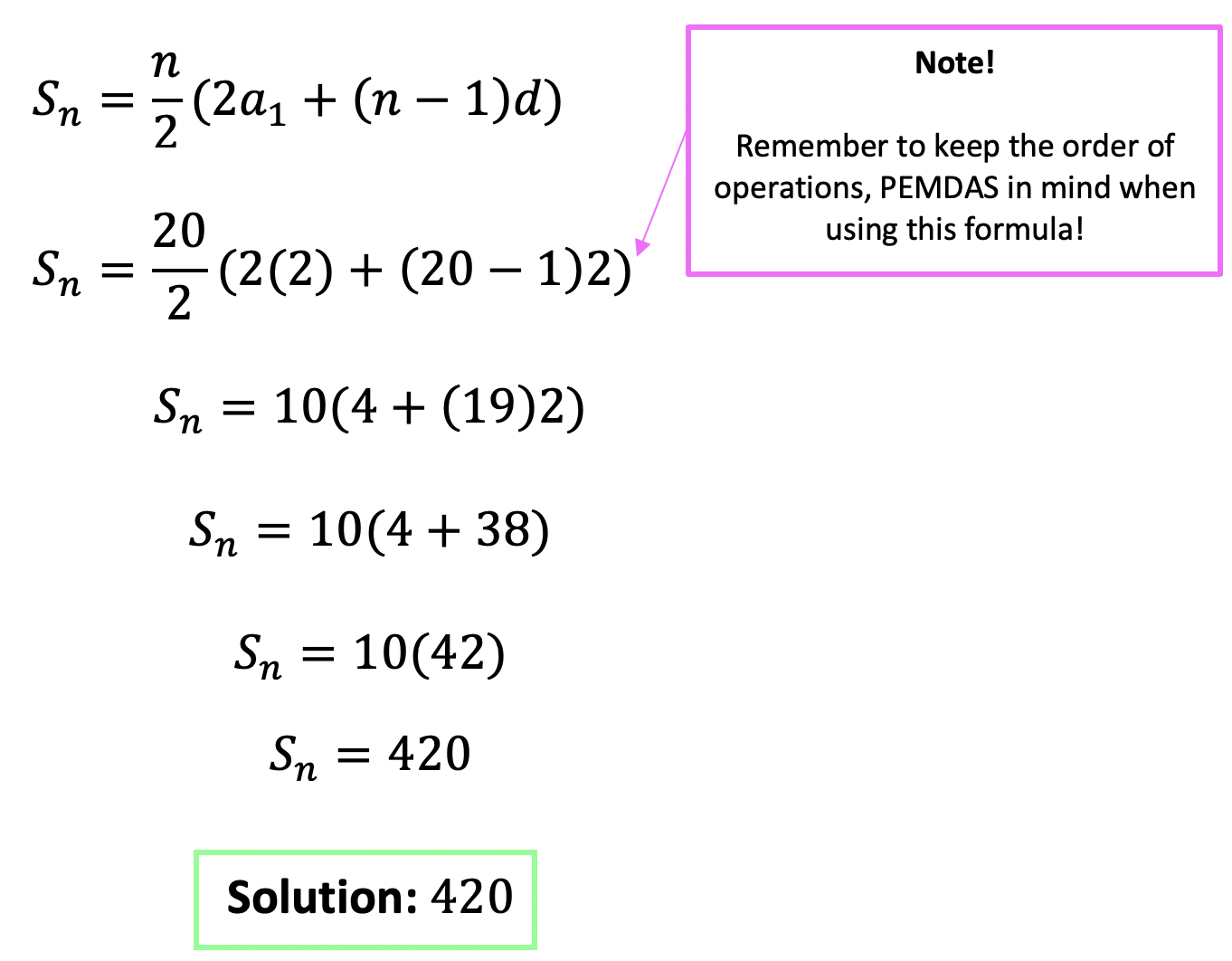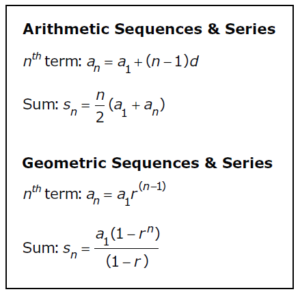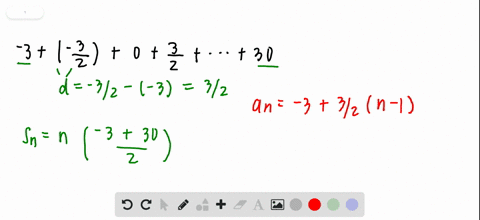

Step 1: The nth term of an arithmetic sequence,Īn = a1 + (n – 1)d, where the first term is a1, the second term is a1 + d, the third term is a1+ 2d, etc and this gives the formula of the sum of the arithmetic series, Sn Using the formula for the sum of terms in an arithmetic sequence, 10 S 2 2 20 110.
SUM OF ARITHMETIC SEQUENCE FORMULA EXAMPLE SERIES
“n” is the total number of terms in the sequence andĭerivation of Sum of Arithmetic Series FormulaĮvery term following the first is derived by adding a constant, referred to as the common difference (d), in an arithmetic sequence. “d” is the common difference between the terms, “S” is the sum of the arithmetic sequence, When the Last Term is Not Given: S = n/2 When the Last Term is Given: S = n/2(a + L) The following are the formulae for the sum of the arithmetic sequence: For example, find an explicit formula for 3, 5, 7.
SUM OF ARITHMETIC SEQUENCE FORMULA EXAMPLE HOW TO
We can find the sum of the arithmetic series in one of two methods. Explicit formulas for arithmetic sequences Google Classroom Learn how to find explicit formulas for arithmetic sequences.

To create the formula using our sample list above, type SUMPRODUCT(. We know that the addition of the members leads to an arithmetic series of finite arithmetic progress, which is given by (a, a + d, a + 2d, …) where “a” = the first term and “d” = the common difference.įormula for Sum of Arithmetic Sequence Formula Example of the SUMPRODUCT function used to return the sum of items sold when provided unit. The formula for calculating the total of all the terms in an arithmetic sequence is known as the sum of the arithmetic sequence formula. What Is Sum of Arithmetic Sequence Formula?

We solve 3 + (n 1)4 Calculating the Sum equals the sum of the. The general form of an A.P is: (a, a+d,a+2d,a+3d……) where a is the first term and d is a common difference. For example, in the arithmetic sequence 1, 5, 9, 13, 17,, the difference is always 4. This should help you get familiar quickly with the arithmetic series formula. The purpose of this problem is to serve as an introductory example. can be manually calculated by adding the terms together: 2 + 4 + 6 + 8 20. The nth term of an A.P is given by Tn= a+(n−1)d, where a is the first term, d is a common difference and n is the number of terms. Examples of Applying the Arithmetic Series Formula Example 1: Find the sum of the first 100 100 natural numbers. For example, adding the first four terms of the arithmetic sequence 2, 4, 6, 8.

While an infinite A.P does not have the last term, a finite A.P will. If the common difference of any two consecutive terms, for any A.P, is as follows:įinite and Infinite Arithmetic ProgressionĪ finite AP is an A.P in which the number of terms is finite.Īn infinite A.P is an A.P in which the number of terms is infinite. Applications of Arithmetic Progression in real life: If you observe closely, you will notice how life around you moves closely in arithmetic sequences. In the progression: 2, 5, 8, 11, 14 …the common difference is 3. Example: The multiples of 3 3 are 3,6,9,12,15,18,21,24 3, 6, 9, 12, 15, 18, 21, 24 For a given multiple, the next one can be obtained by just adding 3 3 to it."Common difference"(d) is the difference between two consecutive terms in an AP (which is constant). Key Terms: Arithmetic Progression, Common Difference, Finite and Infinite AP, General Term, SumĪrithmetic progressions are progressions in which the difference between two consecutive terms is constant. Derivation of Sum of Arithmetic Series Formula.Formula for Sum of Arithmetic Sequence Formula.What Is Sum of Arithmetic Sequence Formula?.Finite and Infinite Arithmetic Progression.This give us a general formula for the sum of the first \(n\) terms of an arithmetic sequence. The sum of an arithmetic series is found by multiplying the number of terms times the average of the first and last terms.


 0 kommentar(er)
0 kommentar(er)
